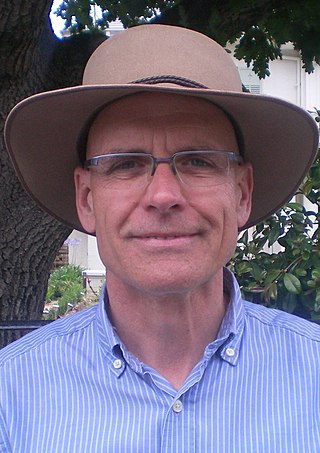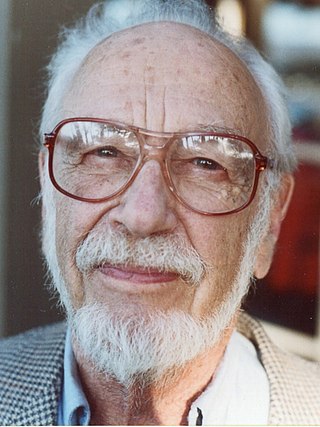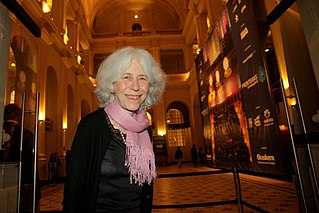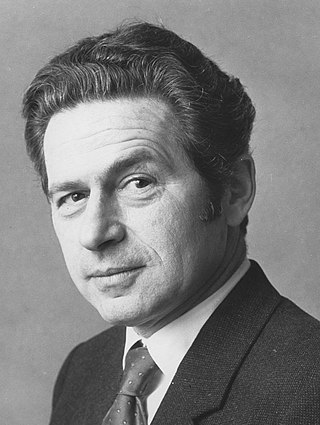Related Research Articles

Clive Charles Hamilton AM FRSA is an Australian public intellectual currently serving as Professor of Public Ethics at the Centre for Applied Philosophy and Public Ethics (CAPPE) and the Vice-Chancellor's Chair in Public Ethics at Charles Sturt University. He is a member of the Board of the Climate Change Authority of the Australian Government, and is the Founder and former Executive Director of The Australia Institute. He regularly appears in the Australian media and contributes to public policy debates. Hamilton was granted the award of Member of the Order of Australia on 8 June 2009 for "service to public debate and policy development, particularly in the fields of climate change, sustainability and societal trends".

Lloyd Stowell Shapley was an American mathematician and Nobel Memorial Prize-winning economist. He contributed to the fields of mathematical economics and especially game theory. Shapley is generally considered one of the most important contributors to the development of game theory since the work of von Neumann and Morgenstern. With Alvin E. Roth, Shapley won the 2012 Nobel Memorial Prize in Economic Sciences "for the theory of stable allocations and the practice of market design."

David Gale was an American mathematician and economist. He was a professor emeritus at the University of California, Berkeley, affiliated with the departments of mathematics, economics, and industrial engineering and operations research. He has contributed to the fields of mathematical economics, game theory, and convex analysis.

John Quiggin is an Australian economist, a professor at the University of Queensland. He was formerly an Australian Research Council Laureate Fellow and Federation Fellow and a member of the board of the Climate Change Authority of the Australian Government.

Sir Raymond William Firth was an ethnologist from New Zealand. As a result of Firth's ethnographic work, actual behaviour of societies is separated from the idealized rules of behaviour within the particular society. He was a long serving professor of anthropology at the London School of Economics, and is considered to have singlehandedly created a form of British economic anthropology.
William Edward Hanley Stanner CMG, often cited as W.E.H. Stanner, was an Australian anthropologist who worked extensively with Indigenous Australians. Stanner had a varied career that also included journalism in the 1930s, military service in World War II, and political advice on colonial policy in Africa and the South Pacific in the post-war period.

Emma Georgina Rothschild is a British economic historian, a professor of history at Harvard University. She is director of the Joint Centre for History and Economics at Harvard, and an honorary Professor of History and Economics at the University of Cambridge. She formerly served as board member of United Nations Foundation and as a professor at the École des hautes études en sciences sociales (EHESS) in Paris.

Professor emeritus Hugh Stretton was an Australian historian who wrote books on politics, urban planning and economics, and a Rhodes Scholar. He was a key figure in the development and implementation of government policies affecting cities, particularly during the Whitlam government.
Alexander Nove, FRSE, FBA was a Professor of Economics at the University of Glasgow and a noted authority on Russian and Soviet economic history. According to Ian D. Thatcher, "[T]he consensus is that he was one of the most significant scholars of 'Soviet' studies in its widest sense and beyond."

Alan George Lewers Shaw was an Australian historian and author of several text books and historiographies on Australian and Victorian history. He taught at the University of Melbourne and the University of Sydney, and was professor of history at Monash University from 1964 until his retirement in 1981.
Trevor Winchester Swan was an Australian economist. He is best known for his work on the Solow–Swan growth model, published simultaneously by American economist Robert Solow, for his work on integrating internal and external balance as represented by the Swan Diagram, and for pioneering work in macroeconomic modeling, which predated that of Lawrence Klein but remained unpublished until 1989.
Sir Douglas Berry Copland was an Australian academic and economist.
Kym Anderson is an Australian economist, specialising in trade policy and issues related to the World Trade Organization. He studied at the University of New England, the University of Adelaide and the University of Chicago before completing a PhD at Stanford University. He holds a Personal Chair in the School of Economics and is Foundation Executive Director of the Centre for International Economic Studies at the University of Adelaide
Oliver Ormond Gerard Michael MacDonagh (1924–2002), was a professor of Irish history who made a particular study of the historic relationship between Ireland and the United Kingdom. MacDonagh spent most of his academic career at universities in Cambridge, Adelaide, Cork and Canberra.

William Letwin was an American academic who ended his career as Professor of Political Science at the London School of Economics.
The Challis Professorship are professorships at the University of Sydney named in honour of John Henry Challis, an Anglo-Australian merchant, landowner and philanthropist, whose bequests to the University of Sydney allowed for their establishment.
Professor Richard Charles Mills was an Australian economist and academic. He was head of the Faculty of Economics at the University of Sydney for 23 years, and a key member of several Australian government instrumentalities.
Sydney James Christopher Lyon Butlin (1910–1977) was an Australian economist and historian. He was born on 20 October 1910 in Eastwood, a suburb of Sydney, the second of six children of Australian-born parents, Thomas Lyon Butlin, an orchard farmer and railway porter and Sara Mary, née Chantler. He is the brother of notable economic historian, Noel George Butlin (1921–1991).
The Economic History Society of Australia and New Zealand is a learned society. Since its foundation in 1974, it has published the Australian Economic History Review. It also holds annual conferences and awards prizes for contributions to the field. An annual lecture in honour of Noel Butlin has been held since 2004, replacing the biennial lecture in honour of Alfred Charles Davidson that ended in the 1990s.
References
- ↑ "Obituary - Noel George Butlin - Obituaries Australia". oa.anu.edu.au.
- 1 2 Shapley, Maggie. Butlin, Noel George (1921–1991). National Centre of Biography, Australian National University – via Australian Dictionary of Biography.
- 1 2 3 4 5 6 7 8 Shapley, Maggie, "Noel George Butlin (1921–1991)", Australian Dictionary of Biography, Canberra: National Centre of Biography, Australian National University, retrieved 11 February 2024
- ↑ "Emeritus Professor Noel George Butlin". It's An Honour. Retrieved 14 September 2021.
- ↑ Hunter, Boyd (2024). "Economics and the dreamtime revisited: Creating a truly Australian economic history?". Asia‐Pacific Economic History Review. doi:10.1111/aehr.12279. ISSN 2832-157X.
- ↑ Reynolds, Henry (1 December 1994). "Economics and the Dreamtime". Oceania. 65 (2): 187–189.